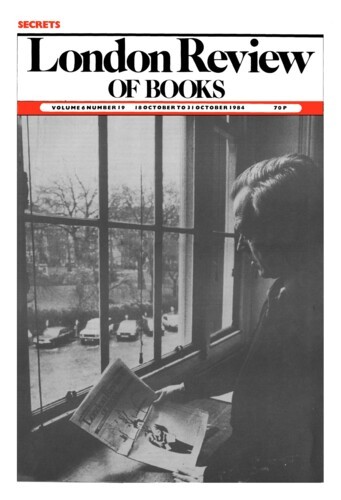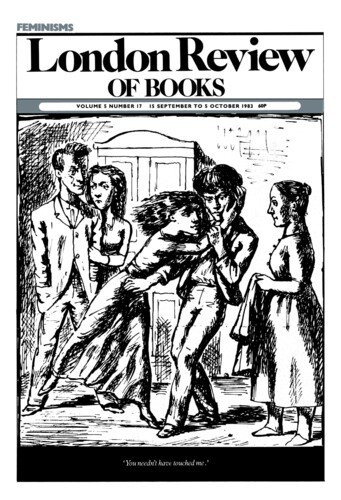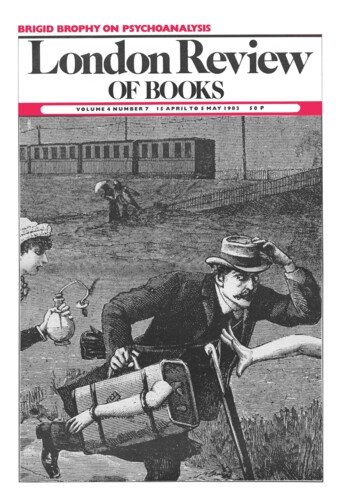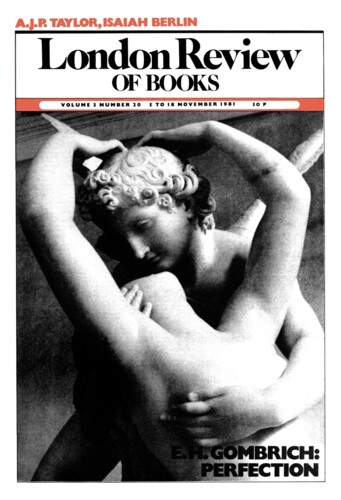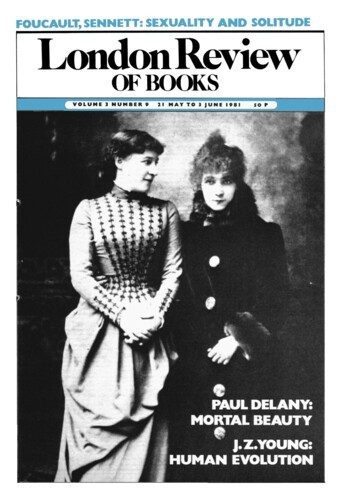Private Lives and Public Affairs
Onora O’Neill, 18 October 1984
Liberal thinkers are keen on self-criticism, a necessary discipline for those who don’t accept intellectual authority. But it can have embarrassing moments, when too much is stripped away and exposed. Most of the essays in Public and Private in Social Life explore aspects of ‘the familiar liberal conception of public and private’; three are ‘external’ critiques of liberal thought, and three describe related distinctions drawn in distant cultures. Nearly all the essays are thoughtful and tough-minded; and many have interesting things to say: but in spite of the underlying commitment to liberalism there is no point at which criticism and self-exposure are compensated for. We are left to wonder whether there is any coherent way in which liberal thought can distinguish the public from the private.
